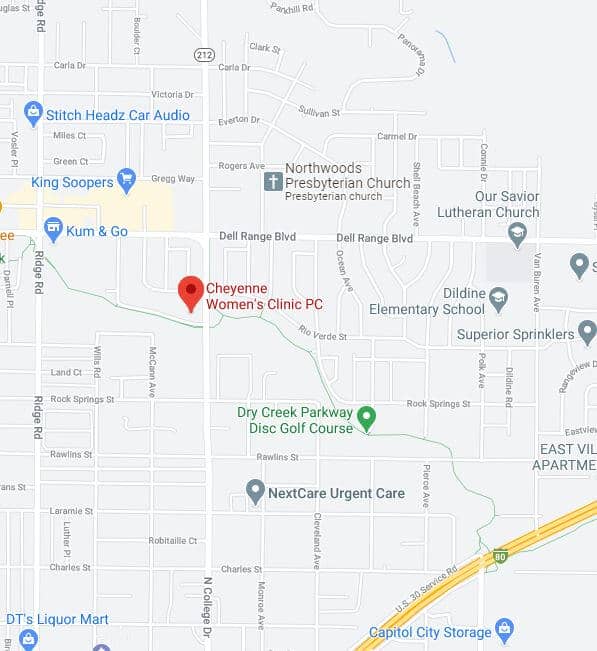There are many birth control options available for family planning from the providers at Cheyenne Women’s Clinic. The right one for you depends on a number of factors. These include whether you may want to have children in the future, if you don’t mind thinking about your birth control on a regular basis, whether you need protection from sexually transmitted infections, and others.
If you’re thinking about birth control, talk with your provider about the different options for family planning and what would be best for your needs.
Birth Control Options
Barrier birth control methods – These include condoms, as well as the diaphragm and cervical cap that require an appointment for you to be “fitted” to ensure you have the right size.
Hormonal birth control methods – These work primarily by preventing ovulation. They include:
- Birth control pills – Must be taken every day. Learn what you should know about "the pill."
- Contraceptive patch – Each patch lasts for a week.
- Vaginal ring – Lasts for three weeks and is replaced monthly.
- Hormone shots – Lasts for three months, must visit your provider for each shot.
Long-acting reversible contraception – These types of birth control work work well if you don’t want to think about your birth control on a regular basis but you think you would like to have children someday.
- Hormone implant – Lasts for up to three years, but your provider can remove it at any time if you decide you would like to become pregnant. Learn about Nexplanon.
- IUD (intrauterine device) – Lasts for five or ten years, but your provider can remove it if you would like to become pregnant. Paragard is a non-hormonal IUD, and Mirena and Kyleena both work using hormones.
Permanent birth control – Sterilization is birth control for women who don’t want to have children or who don’t want any more. The most common is tubal ligation (“getting your tubes tied”).
Call us at 307.637.7700 to make an appointment with a provider to talk about which birth control method might be right for you.







